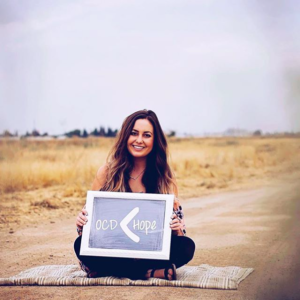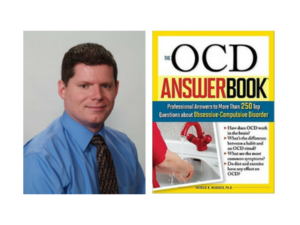Ep. 69: Everything You Need To Know About Self-Compassion (Interview with Paul Gilbert)
Everything You Need To Know About Self-Compassion (Interview with Paul Gilbert)
 This week’s episode of Your Anxiety Toolkit is going to blow your mind! Yes! You better believe it! If you have been thinking you should start a self-compassion practice for yourself, THIS is the episode for you. Today we are going to discuss everything you need to know about self-compassion.
This week’s episode of Your Anxiety Toolkit is going to blow your mind! Yes! You better believe it! If you have been thinking you should start a self-compassion practice for yourself, THIS is the episode for you. Today we are going to discuss everything you need to know about self-compassion.
This week I am so honored to talk with Paul Gilbert, Professor of Clinical Psychology at the University of Derby and Consultant Clinical Psychologist at the Derbyshire Health Care Foundation Trust.
Paul Gilbert is what I consider a Self-Compassion and Shame “Guru.” We all know shame and we all know how difficult shame can be when it comes to Anxiety Disorders, such as Obsessive Compulsive Disorder (OCD), Social Anxiety, Specific Phobias, Panic Disorder, Generalized Anxiety Disorder (GAD), and Body Focused Repetitive Behaviors (BFRB’s), such as Trichotillomania (hair pulling) and Dermatillomania (compulsive skin picking). Paul shares with us his beautiful insight and understanding of the human brain and how to apply self-compassion in our daily living. So much of what Paul has to say compliments the discussions we have had on the podcast already.
Professor Gilbert performed psychopathology research for over 35 years with a special focus on shame and the treatment of shame-based difficulties. Paul Gilbert was the founder of Compassion-Focused Therapy (CFT) and I am certain you are going to LOVE what he has to say. Paul Gilbert has written and edited 20 books and established the Compassionate Mind Foundation in 2006. He was awarded an OBE in March 2011.
During this interview, Paul shares everything you need to know about self-compassion. Paul explains his work and research on self-compassion and how he came to practice and develop Compassion-Focused Therapy. Paul addresses why he thinks we are so hostile or self-critical towards oneself and what he considers the most important tools for practicing self-compassion
The most beautiful part of this podcast episode is that we ALL need to be better at practicing self-compassion.
As a reminder, it’s BFRB Awareness Week (October 1-7)! Click here for more information on BFRB School, which is a complete online course for Body-Focused Repetitive Behaviors (BFRB’s).
Lastly, OCD Awareness Week is coming up from October 7-13! OCD SoCal will celebration OCD Awareness Week on October 7 from 1:00 pm-5:00 pm in Los Angeles, Orange County, and San Diego. Go to IOCDF.org or search your local area for events.
 Welcome back to another Your Anxiety Toolkit Podcast episode! This week’s episode of Your Anxiety Toolkit is all about How to do Hard Things.
Welcome back to another Your Anxiety Toolkit Podcast episode! This week’s episode of Your Anxiety Toolkit is all about How to do Hard Things. Psst! This wasn’t planned, but we decided to keep
Psst! This wasn’t planned, but we decided to keep  This podcast episode of Your Anxiety Toolkit is all about the Seasons. I have received a lot of requests to talk about changing seasons as we move from Summer to Autumn (here in the Northern Hemisphere). It isn’t just here. I am sure it is all around the world right now, as the seasons change from Winter to Spring for the Southern Hemisphere (Love you Australia!).
This podcast episode of Your Anxiety Toolkit is all about the Seasons. I have received a lot of requests to talk about changing seasons as we move from Summer to Autumn (here in the Northern Hemisphere). It isn’t just here. I am sure it is all around the world right now, as the seasons change from Winter to Spring for the Southern Hemisphere (Love you Australia!).
 We have some SUPER exciting news this week. We are offering a NEW and FREE training called “The 10 Things you absolutely need to know about Obsessive Compulsive Disorder (OCD).” This webinar will be great if you are new to
We have some SUPER exciting news this week. We are offering a NEW and FREE training called “The 10 Things you absolutely need to know about Obsessive Compulsive Disorder (OCD).” This webinar will be great if you are new to  In this episode of Your Anxiety Toolkit, we talk about Addressing Fear like Scientists. Not the scary white haired kind! In this week’s episode, we talk about becoming scientists who run studies that are rational, evidence-based, and experienced-based. Each time we have a thought, we have an opportunity to be a scientist. Don’t worry about those white coats. You don’t need them for these experiments. And you don’t need to have a fully fledged scientist degree either.
In this episode of Your Anxiety Toolkit, we talk about Addressing Fear like Scientists. Not the scary white haired kind! In this week’s episode, we talk about becoming scientists who run studies that are rational, evidence-based, and experienced-based. Each time we have a thought, we have an opportunity to be a scientist. Don’t worry about those white coats. You don’t need them for these experiments. And you don’t need to have a fully fledged scientist degree either. Experiencing and managing anxiety is a hard and courageous task. And you guys know what I am going to say next. It is a beautiful day to do hard things!
Experiencing and managing anxiety is a hard and courageous task. And you guys know what I am going to say next. It is a beautiful day to do hard things!

